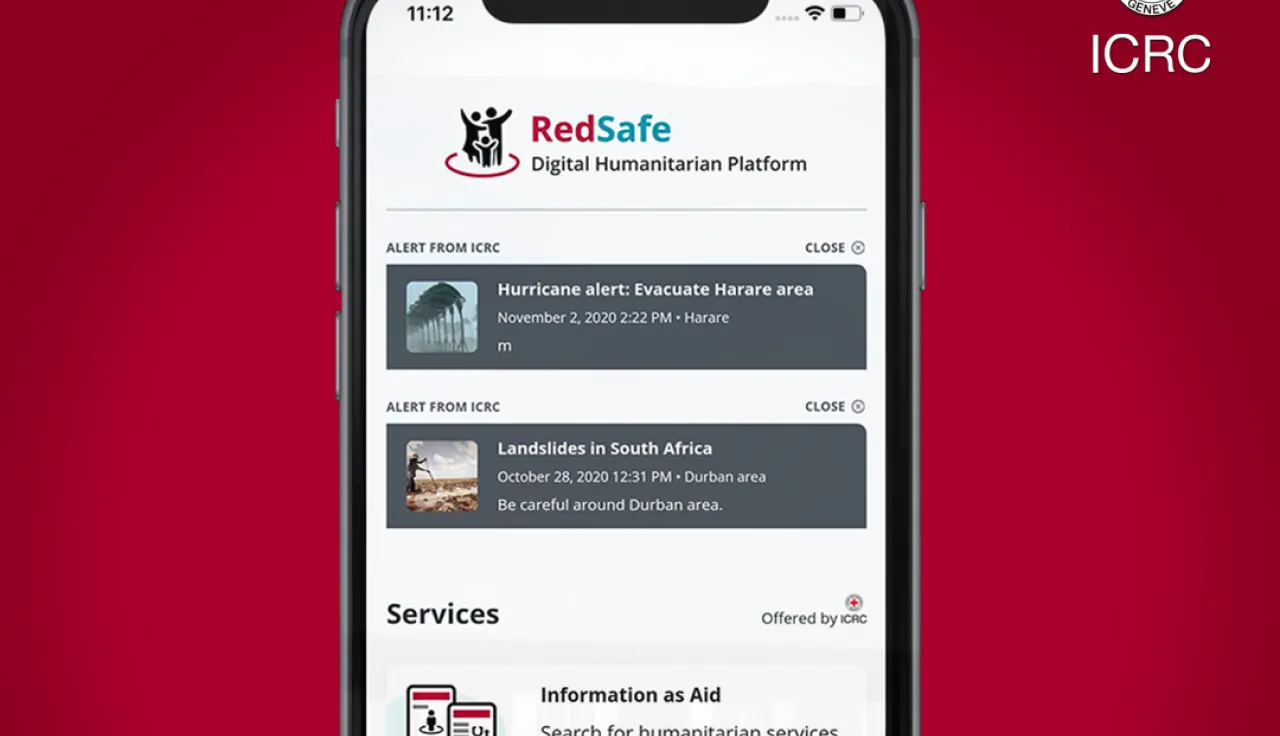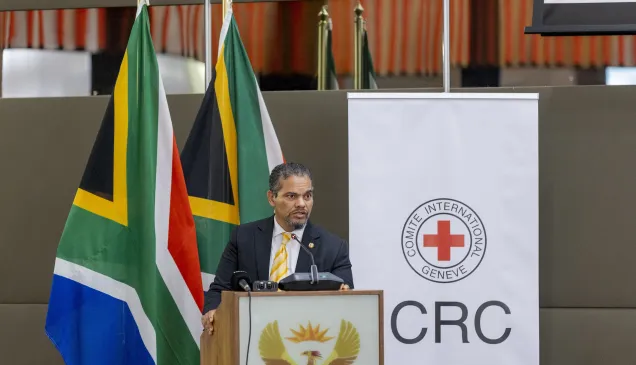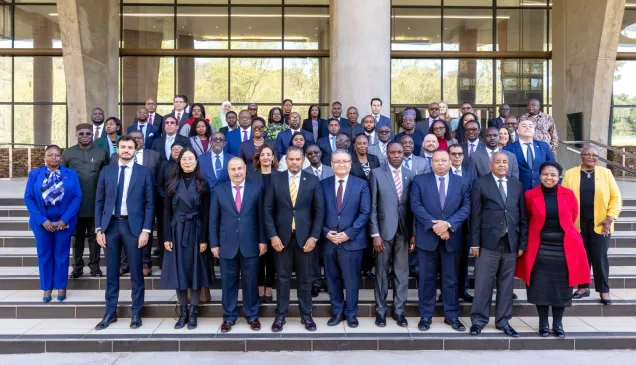South Africa: Reconnecting families

Every year, millions of people are displaced by armed conflicts, violence, and disasters. Reportedly, Southern Africa hosts millions of vulnerable migrants, asylum seekers and refugees, some of whom have lost contact with loved ones.
The ICRC Regional Delegation in Pretoria supports National Red Cross Societies and other public services in the search, identification, and reunification of separated and missing people with their relatives. In South Africa and Zimbabwe, the ICRC has launched information kiosks offering services such as RedSafe and Trace the Face apps, GSM phone calls, internet connections and phone charging enabling those moving through the southern migratory route to maintain contact with their families.
From January to December 2023, the ICRC, in collaboration with the National Red Cross Societies of Angola, Malawi, South Africa, Zambia and Zimbabwe, connected thousands of people with their loved ones, including 8,900 held at the Lindela Holding Facility in Krugersdorp, South Africa.
When Mhangami left her community of Kuwadzana in Harare, Zimbabwe in 2016, she had no idea she would go four years without contact with her loved ones. Limited connectivity and high mobile phone rates, particularly for cross-border communications, were among the obstacles she faced.
When Mhangami migrated to South Africa in search of rewarding job, she had to leave her children behind. The mother of two is now able to connect with her family at least three times a week thanks to the South African Red Cross Society (SARCS) volunteers who run a mobile information kiosk designed to support migrants in the area.
Asked how she felt about the sad news back home, an emotional Mhangami was quick to say that it was a painful experience. “Not only did I learn about the death of family members, but I also found out that my children were really suffering. As a mother who loves her children, I was traumatized and with me being able to talk to them regularly our relationship has improved, and I feel a lot better.”
The SARCS branch manager in Pietermaritzburg, Prince Hlombe, was upbeat about the assistance for migrants in the area. “We saw a need to integrate our service offerings with the bus service which runs from PMB to Zimbabwe. Our mobile information kiosk is well positioned to facilitate access to services where migrants congregate. While we are not able to solve many other challenges faced by migrants, the least we can do is to link people with their loved ones through various means,” Hlombe said.



